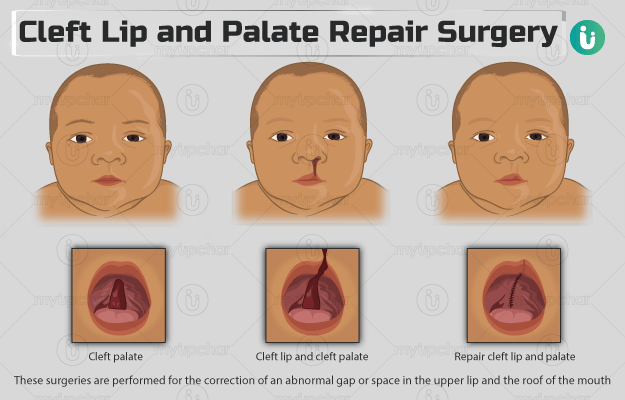Summary
The cleft lip and palate repair surgeries are performed for the correction of an abnormal gap or space in the upper lip (cleft lip) and the roof of the mouth (cleft palate), respectively. Cleft lip/palate is a birth defect occurring due to incomplete formation of the upper lip and palate during a baby’s development inside mother’s womb. The surgery to repair the cleft lip can be performed in children aged between 3 and 6 months, whereas the surgery to repair the cleft palate can be performed in children aged between 6 and 12 months. The two procedures can also be done together if needed.
The child will be given medicines to remain asleep during the procedure. The surgery involves the creation of a flap of tissue on one or both sides of the cleft palate/lip and stitching them together to close the gap. The child’s hospital stay can extend up to five to seven days post-surgery. It will take the child about four weeks to recover after the operation. Additional procedures including rhinoplasty and bone grafting may be needed after a cleft lip and palate repair surgery along with therapy to improve the child’s appearance and correct dental, speech or hearing problems.






































